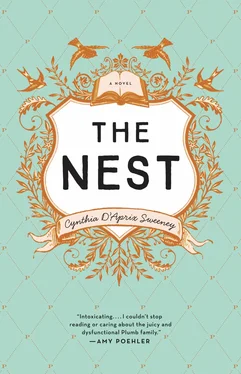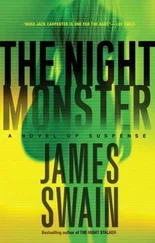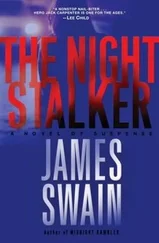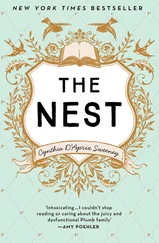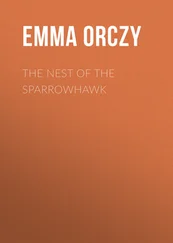Leo was home alone, sitting in Stephanie’s tiny second-floor back room, the space he’d appropriated as his office, trying to work out his pitch for Nathan whom he was finally scheduled to meet with later in the week.
Out the window, the bare January trees and leafless shrubbery allowed him full purview of all the neighboring yards to the side and the rear. He could see straight down into the kitchen of the brownstone directly behind Stephanie’s, the layout just like hers but reversed — the rooms a little more colorful, maybe a little shabbier. A spindly blonde in black jeans and a baggy red sweater was arranging an array of sliced fruit on a plate for two little boys bouncing and swiveling on breakfast stools at the island counter. The boys were the same size and coloring, twins probably. Leo wondered when twins had become as common as the common cold. He thought of Melody’s daughters who, he dimly remembered, were a happy accident. She probably hated that people assumed she’d had some kind of fertility treatment, that she and Walter didn’t get credit for two of his determined sperm successfully penetrating two of her enterprising ova. That type of thing would drive her crazy. He watched as one of the kids across the way shoved his brother off the seat and out of sight, presumably down to the floor because the mother raced over and bent down and when she stood the boy was in her arms, his legs wrapped around her waist, his face buried in her shoulder. He could see the boy’s shoulders heaving, the mother stroking his back and mouthing shhh, shhh, gently rocking him back and forth. In the house next to hers, a middle-aged man walked through his kitchen with someone who looked like a contractor. The contractor was pointing at the ceiling molding with an extension of measuring tape while the homeowner nodded. Back to the right, red-sweater mom opened her back door and dumped a plate of fruit peels into what he guessed was a compost bin. He found the tableau behind Stephanie’s house endlessly entertaining. He could sit and watch all the quiet lives of aspiration play out for hours. It was strangely soothing. Brooklyn was growing on him.
Though Stephanie hadn’t been kidding about the drugs or borrowing money (not that he was using any drugs at the moment; not that he needed to ask for money), she’d been a pushover about the sex. They’d spent most of the power outage in bed, undressed, making their bodies sing the old familiar tune. “You can stay until you find a place,” she’d said a few days later.
Victoria finally shipped Leo his belongings, no more than a dozen boxes; he didn’t want much. It took leaving his life with Victoria to understand how much of it had been constructed by her (using his money) in a way he didn’t miss and certainly wasn’t eager to re-create. The relentlessly neutral palette with splashes of dark brown or black (“It’s like living in a gigantic portobello mushroom,” he’d complained to her once), the spare modern furniture, the sterile metallic Italian light fixtures, her quirky (and as it turned out nearly worthless) taste in a handful of upcoming-but-still-wildly-pricey artists — he was ecstatic to leave it all behind. Aside from recovering the years of his life he’d spent wooing, winning, and then regretting her, all he wanted from Victoria were a smattering of personal belongings and a few boxes of old SpeakEasy files. He unpacked the clothes he needed and stored the rest in Stephanie’s basement. They were calling it temporary.
When Stephanie first told him about Nathan Chowdhury’s alleged new project, he’d managed to keep a neutral face.
“I’m not sure exactly what it is,” she’d said. “We were at a party and it was very loud and incredibly hot and, you know, he was classic Nathan, going a million miles a minute in seventeen different directions. Genuine writers. Irreverent but vigorous. Smart but sexy. Bloody brilliant. ” She did a decent impression of him and his vaguely British accent, left over from his early years in Kilburn. “Maybe you should call him,” she’d said, a little too casually. “Maybe he needs a content guy.”
“Maybe.”
What Stephanie had described was not a new idea of Nathan’s; it was an old idea of Leo’s. Back when SpeakEasyMedia was generating new sites faster than they could have imagined, Leo had wanted to create a writing hub. Something that would have a separate identity and attract serious writers, fiction and nonfiction, reportage, high-level think pieces. They had to focus on gossip at first because it was cheap and easy and fun and people would read it — but once they had a little traction, a little more money, Leo wanted to balance the gossip and blind items with something respectable. First, they needed money, and gossip was where they’d find it.
Interesting that Nathan who hadn’t been taken with Leo’s idea back then (“You’re describing a gaping sinkhole that will suck up money and not return a proper cent”) was ready to revive the concept. On his own.
“Any specifics?” Leo asked Stephanie.
“No, it sounded very early stage. He did say he was considering acquiring an existing publication to build around.” (Another idea of Leo’s from back in the day.) “He asked for suggestions. I told him to look at Paper Fibres .”
“He can do better than that.”
“Paul’s respected, Leo. I respect him. He could use an influx of cash. And Paul does stuff with the public schools and literacy, and Nathan was also interested in the philanthropic angle.”
“Since when is Nathan interested in philanthropy?”
“Since he got married and had a couple of kids and is probably looking to impress the private school admissions committees. He went to Darfur a few months ago.”
Leo snorted a little. Literacy? Darfur? All he could think about in that moment was a particularly depraved evening at some bar on the Lower East Side one late, late night (early morning? probably) when a bleary-eyed Nathan outlined the SpeakEasyMedia financial model on a series of napkins: how they’d make their first million, how quickly he’d leverage it into more, how many people along the way would bend to his vision—“collateral damage, can’t be helped”—how soon they’d be retired. Leo had sat next to him on the barstool, half listening, while an extravagantly pierced but fetching young musician flirted with him and then leaned against Nathan and then back into Leo, making her interest in both apparent. “Do you guys want to come home with me?” she’d finally said, as the bartender was ushering them out the door. “Both of you?” He’d been relieved when Nathan passed out the second he landed on her sofa. If he was going to engage in a threesome, it wasn’t going to be with Nathan. Pierced, as he sometimes still fondly thought of the musician, kept Leo up until sunrise; she taught him some things.
“I feel like Rip Van Winkle right now,” Leo said to Stephanie. “Like I woke up and everyone became their exact opposite. Paul Underwood’s a literary force. Nathan’s a philanthropist.”
“Yeah, well. Things changed while you were otherwise occupied.”
At first, Leo just pretended to be interested in Nathan’s new venture, a way to kill time while waiting for his divorce to be final, an amusing lark that would keep everyone off his back and halt all the lame suggestions about work. But the more he talked to Paul Underwood, the more he realized the potential sitting there, untapped.
Paul’s content was stellar — Leo was impressed with who and what he was publishing — so was the layout, design, art. But everything else was dismal. The office was chaotic and inefficient, like almost anything in the publishing world. Without even trying, Leo could think of a dozen things they could do immediately to raise the profile and productivity of the magazine and expand in a multitude of interesting ways, starting with a more robust online presence. Social media. A blog. An app! Paper Fibres could — should — publish a handful of books every year. They needed a bigger staff.
Читать дальше
Конец ознакомительного отрывка
Купить книгу
